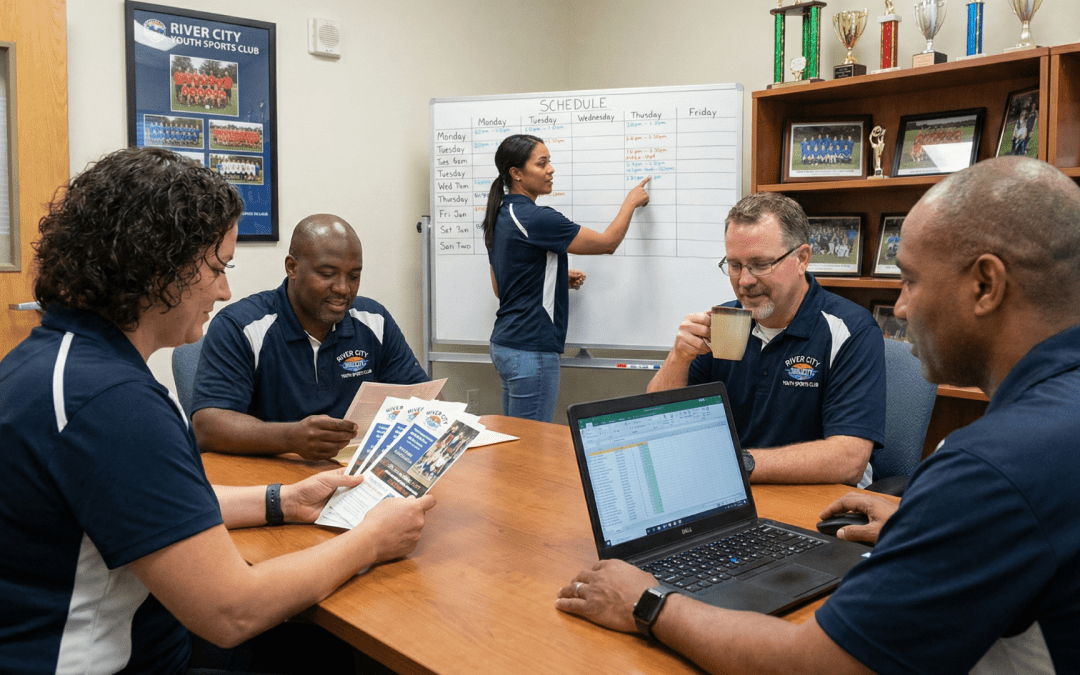
by Sharai Lavoie | Sep 24, 2025 | Competitive Advantage, Finance
In moments that matter, whether it’s a potential acquisition, investor outreach, or board presentation, leadership teams are often asked to respond quickly, with accuracy and confidence. But for many companies, these moments cause strain. Reports take too long to generate. Numbers don’t reconcile. Teams aren’t aligned.
At Lavoie CPA, we help businesses remove that friction entirely. We partner with leadership teams to implement operational systems that support fast, confident decision-making, without pausing or disrupting the business. The result is not just faster turnaround; it’s a competitive edge rooted in financial readiness.
How Prepared Companies Stay Ahead
Companies that consistently lead in high-stakes moments aren’t just reacting better; they’re operating differently every day. Their readiness isn’t circumstantial; it’s systemic.
Here’s what sets them apart:
- Up-to-Date, Reconciled Financials – They don’t wait until a deal is on the table to clean up the books. Regular monthly reconciliations keep financials accurate, timely, and ready for investor-grade review, at a moment’s notice.
- Current and Accessible Data Rooms – Prepared teams maintain their data rooms as living documents, not static folders. Contracts, KPIs, policies, and investor materials are continuously updated, so there’s no scramble when due diligence begins.
- Connected Systems and Unified Data – Their accounting and CRM platforms talk to each other. That means sales forecasts, revenue models, and board reporting all pull from the same, accurate source, avoiding the time lost reconciling conflicting versions.
- Cross-Functional Collaboration – Sales, finance, and operations don’t operate in silos. They follow a rhythm of shared reporting and joint planning, which prevents misalignment and builds internal trust.
The net result? When a board request or investor inquiry arrives, these companies don’t have to “get ready.” They already are.
What Lavoie CPA Helps You Build (and How)
We’ve seen too many companies lose time, deals, or valuation because their internal systems couldn’t keep up with external opportunities. That’s why our approach focuses on building infrastructure that supports speed, clarity, and resilience.
Here’s how we do it:
1. Financials That Are Always Deal-Ready
Rather than waiting for year-end or major events, we help clients implement monthly close and reconciliation processes. This means your numbers are never more than a few weeks old, and they’re always audit-ready, accurate, and aligned with how you present your business to investors or buyers. No need to pull late nights reworking spreadsheets or searching for backups.
2. CRM-to-Finance Integration for Real-Time Insight
Your pipeline data shouldn’t live in isolation from your financial data. We help clients connect CRM and accounting systems in ways that make revenue projections, cash flow models, and investor presentations easy to generate and easy to trust. This ensures alignment between what sales is saying, what finance is reporting, and what leadership is deciding.
3. Proactive, Not Reactive, Document Management
We work with clients to establish documentation routines that keep contracts, metrics, cap tables, and policy files up to date on a regular cadence. This includes building and maintaining data room structures that reflect your business today, not last quarter. When diligence begins, you’re already positioned to respond confidently.
4. A Cadence of Collaboration
Processes matter, but so does communication. We facilitate monthly and quarterly syncs across departments to review forecasts, reconcile assumptions, and adjust as needed. This structure prevents misalignment and ensures every team is working from the same strategic narrative.
Why It Pays Off, Every Day, Not Just in Deals
A readiness mindset doesn’t just help you when something big happens. It improves how your business operates every day.
- Shorter Due Diligence Cycles – When everything is in place, buyers and investors can move faster and with more confidence.
- Increased Investor and Board Trust – Consistent, reconciled data builds credibility. It signals that your team knows what’s happening in the business at all times.
- Stronger Negotiation Leverage – Prepared companies aren’t just reacting to offers. They’re proactively shaping the conversation, armed with accurate data and clear narratives.
- Confidence Across the Team – When systems support the team, the team can focus on strategy, not cleanup. That confidence radiates across the organization.
Be the Company That’s Always Ready
You don’t need to wait for the next big ask to start preparing. In fact, the companies that do best in high-pressure situations are the ones that have already done the work to operate with clarity every day.
At Lavoie CPA, we help leadership teams build the cadence, structure, and financial visibility they need to act strategically, without slowing down. Whether you’re planning for growth, considering funding, or just want to improve internal alignment, we help you get ready and stay ready.
Start the conversation today.

by Sharai Lavoie | Sep 24, 2025 | Budgeting, Forecasting
Delayed or disconnected financial reporting can mean missed opportunities and budget surprises. When your month-end numbers land weeks late, or worse, don’t tie back to the plan, you’re left making decisions in the dark. The key to proactive financial management lies in reports that seamlessly link actuals to your budgets and forecasts, so you can spot variances, adjust tactics, and drive growth in real time.
1. Define Clear Reporting Objectives
Before building any report, clarify what decisions it must inform. Ask yourself:
- Who needs visibility into the company’s financial results (e.g., department leads, directors, board)?
- What questions should the report answer (e.g., “Which sales people are hitting their revenue targets” or “Which expense categories are drifting over budget”)?
- How frequently will decision makers need to review their financial data – daily, weekly, monthly?
Setting objectives up front ensures every metric you include drives action.
2. Align Your Chart of Accounts to Key Drivers
A generic account structure forces lengthy reconciliations. Instead:
- Map accounts to programs and locations – Where applicable, assign revenue and expense accounts to each team, department, or location.
- Use consistent dimensions – Creating efficient dimensions such as department, location, customer, etc. will allow you to slice data by revenue or expense category. (Cross reference to our blog on data dimensions.)
- Standardize naming conventions – Keep account labels simple and uniform. Too often, we see companies creating too much complexity by using too many accounts in their chart of accounts or creating accounts that are specific to a vendor or customer. (Cross reference to the chart of accounts blog)
- Build your budget and forecasts using the same chart of accounts in your accounting system – This helps streamline the reporting by account so that your budget vs actual analysis is comparable. Additionally, by aligning your chart of accounts between your budgets and actuals, you can upload your budgets into your accounting system for efficient reporting each month.
When your chart of accounts mirrors the drivers in your budget and forecast, reports update automatically without manual workarounds.
3. Automate Data Integration and Reconciliation
Manual exports and Excel formulas introduce errors and delays. Aim for a single source of truth:
- Connect operational systems – Sync your sales, payables, and payroll systems into your accounting system, where possible. It’s best to leverage automated programming interfaces (APIs) rather than spreadsheet uploads.
- Schedule frequent data interfaces – Ensure new transactions feed into your general ledger as real-time as possible, so reports are always current.
- Leverage built-in reconciliation tools – Automate the matching of bank and credit card transactions to posted entries in your accounting system to streamline your work efforts.
Automation not only speeds up reporting, but it also reduces the risk of misstatements that derail decision-making.
4. Build Monthly Budget vs Actual Reports in the Accounting System
Leverage the reporting functionality in your accounting system to create budget vs actual reports. This will allow your team to redirect time from creating spreadsheet reports to variance analysis.
- Budget vs. Actual dashboards – Display actuals side by side with budget and forecast figures, including non-financial drivers (e.g., new and lost customers, employee headcount by department, units sold).
- Variance analysis – Highlight over- and under-performing line items, with callouts for any variance exceeding a set threshold (for example, 5%).
These dynamic elements transform spreadsheet reports into interactive tools that guide strategic conversations.
5. Empower Managers with Role-Based Views
Not every user needs every number. Tailor reports to drive accountability:
- Sales reports – Focus on revenue per person, team, or location.
- Operations managers – Show variances in department budgets versus actual in order to drive accountability for expenses.
- Executive summary – Deliver a high-level dashboard with key KPIs, total revenue, cost ratios, and cash-flow forecasts for senior management and board members.
By giving each stakeholder the right view, you shift from firefighting to collaborative problem-solving.
When your financial reports directly align actuals with budgets and forecasts, you gain the agility to course-correct throughout the year, optimize decisions, and keep every team member focused on growth. Ready to turn your finance function into a strategic advantage? Start the conversation.

by Sharai Lavoie | Sep 3, 2025 | Youth Sports Clubs
Running a youth sports club means juggling practices, travel, registrations, uniforms, facilities, and parent communication, usually with a lean team. If budget vs. actuals only appear after month-end, you’re steering with a rear-view mirror. By the time overspend shows up in Excel, options are limited and costly.
The solution is shifting from manual variance checks to live visibility with clear thresholds and alerts. When gaps surface as they form, you can adjust mid-season, before small variances become unexpected deficits.
What’s getting in the way
- Manual variance analysis after close. Hours in spreadsheets keep leaders reacting weeks later.
- Delayed insights hide overspend. Costs drift across programs and locations without a timely signal.
- Reactive corrections miss the mark. Fixes happen too late to reallocate funds or throttle spend in time.
The shift: real-time budget vs. actuals
- Live budget vs. actual dashboards. See today’s position by program, location, and department, no exports, no version conflicts.
- Threshold-based alerts. Set guardrails (e.g., ±5 – 10% or a dollar amount) and notify the right owner the moment a line drifts off target.
- Visual trend lines. Spot momentum early. If travel, uniforms, or facility costs are bending upward, or registrations dip, you act before a gap hardens.
Result: fewer surprises, cleaner decisions, and the ability to protect margins while the season is in play.
Program-level clarity that matches how you operate
Budget vs. actuals only work when they mirror your structure. We align reporting with programs, locations, and departments, and we build accrual-based budgets so timing differences don’t muddy the picture. Leaders can answer:
- Which program is trending over equipment budget this week?
- Is the variance one-time (expedited shipping) or structural (supplier pricing)?
- Should we pull back ad spend now or reinvest in a waitlisted program?
Mini-scenario
In week three, the U12 travel program’s uniform line trends 12% over plan. A threshold alert pings the operations lead. One click reveals the driver: late registrations triggered expedited orders. The team tightens the cut-off for next session and negotiates shipping on the next batch. Within two weeks, the line returns to plan, freeing cash for coaching clinics instead of firefighting.
Give coaches and managers ownership, without spreadsheets
- Role-based views. Directors see their portfolio; coaches see their team; finance sees the whole club.
- Drill-downs, not downloads. Click from a variance to the underlying transactions, no CSV wrangling.
- Operational levers in view. Tie registrations, sponsorships, and ad spend to financial results so leaders know which knob to turn first.
Implementation in weeks, not months
- Assessment & mapping. We review registration, payments, and accounting; align your chart of accounts and reporting dimensions to programs and locations.
- Integrations & automations. Transactions flow automatically into the GL; manual exports disappear.
- Budget model alignment. Convert plans to accrual-based budgets and set line-level thresholds with clear owners.
- Dashboards & alerts. Launch role-based dashboards with trend lines and notifications routed to responsible leaders.
- Quarterly performance reviews. Tune thresholds, update assumptions, and refine processes as your club evolves.
What changes for your club
- Automated budget vs. actual reporting. Live oversight replaces end-of-month guesswork.
- Threshold-based alerting. Early signals make course corrections smaller and cheaper.
- Ongoing visibility to manage variances. Trends inform weekly decisions and next season’s pricing and staffing.
- Cleaner conversations. Program leaders arrive with facts, not spreadsheets.
Why clubs partner with Lavoie CPA
- Budget vs. actuals tailored to your structure. Variance analysis is built around program-level reporting and accrual-based budgets, so overspend is visible before it becomes a deficit.
- Program-level financial dashboards. Monitor every department and team in one place. Trend lines make it clear where to pull back, or where to reinvest for impact.
Ready to lead with insights instead of chasing numbers?
Start the conversation.

by Sharai Lavoie | Sep 3, 2025 | Youth Sports Clubs
Running a youth sports club means balancing registrations, coaching schedules, facility costs, and marketing, all while keeping an eye on your bottom line. Yet too many organizations rely on static budgets and manual spreadsheets, leading to surprise shortfalls, misaligned staffing, and reactive decisions. Driver-based forecasting changes the game by linking your core operational metrics directly to your financial model, giving you real-time visibility, scenario-planning power, and the confidence to steer your club strategically.
Why Static Budgets Fall Short
- Uniform assumptions ignore program-specific dynamics. One flat growth rate applied across all teams can mask underperforming or overbooked activities.
- Time-consuming updates. Every time registrations shift, finance teams wrestle with complex formulas, often introducing errors and eating into valuable hours.
- Limited “what-if” analysis. Testing scenarios, like a 10% drop in spring enrollments, could require rebuilding the forecast from scratch, delaying strategic response.
These gaps force your organization to chase variances instead of proactively managing resources, impacting both margins and member experience.
What Is Driver-Based Forecasting?
Driver-based forecasting transforms your budget into a living model by:
- Identifying key drivers. Registration counts, membership tiers, coaching hours, equipment rentals, and more.
- Defining unit economics. Assign average revenue and cost assumptions to each driver (e.g., fee per registrant, coach cost per hour).
- Mapping to your chart of accounts. Ensure each driver flows directly into the appropriate revenue and expense lines, so forecasts and actuals align seamlessly.
- Automating inputs. Integrate registration platforms or data feeds so your financial model updates instantly when enrollments change.
Building Your Flexible Forecast Model
- Map existing data sources. Inventory where enrollment, fees, and staffing data currently reside, whether in spreadsheets, registration software, or accounting tools.
- Select impactful drivers. Focus on metrics that move the needle: program-level sign-ups by age group, tier upgrades, and add-on services.
- Design a clean model structure. Use a dedicated driver table that feeds into your budget template so that you can dynamically change inputs.
- Enable automation. Set up API connections or scheduled CSV imports from your registration system to keep driver inputs up to date.
- Validate and refine. Back-test the model against recent actuals to calibrate assumptions before going live.
- Multiple scenarios. Create side-by-side scenarios so you can compare forecasts seamlessly. This allows for “what-if” scenarios and planning for various levels of financial success.
Essential Tools for Seamless Reporting
While Excel can serve as an initial pilot, consider solutions designed for driver-based planning that:
- Sync automatically with both registration platforms and accounting systems.
- Offer built-in scenario planning and what-if analysis without complex formulas.
- Provide dashboards tailored for coaches, program directors and board members so everyone sees the metrics that matter and the goals of the organization.
Embedding Continuous Improvement
Driver-based forecasting delivers its full value when it becomes part of your regular rhythm:
- Monthly forecast reviews. Compare actuals vs. forecasts, discuss driver variances, and agree on adjustments.
- Quarterly assumption updates. Refresh fee levels, coach rates, and staffing ratios based on season-to-date performance.
- Shared visibility. Empower program leaders with snapshot dashboards, so they can act on enrollment trends in real time.
Conclusion
Driver-based forecasting moves your club from reactive firefighting to proactive strategy. With automated data feeds, dynamic models, and aligned reporting, you can optimize staffing and resource allocation all season long.
Ready to build a financial model that grows with your organization?
Start the conversation today.

by Sharai Lavoie | Sep 3, 2025 | Youth Sports Clubs
Managing a youth sports club means balancing coaching, tournaments, member outreach, and volumes of transactional data. When financial reports arrive weeks after the month-end, leadership operates with delayed information, which makes it difficult to quickly take corrective actions.
Unexpected cost overruns, enrollment dips, and budget variances can catch you off guard, undermining growth or allocating resources to ineffective programs.
In this post, we’ll walk through a blueprint for achieving financial clarity: from structuring your accounts to empowering every team member with their own dashboards.
1. Centralize Your Financial Infrastructure
Fragmented accounting and operational systems breed reporting delays and potentially financial uncertainty. We suggest youth sports clubs build a solid accounting and operational foundation that achieves the following:
- Integrates all transactions into one accounting platform, including membership fees, sponsorship payments, and vendor expenses. In such an environment, data should flow automatically and seamlessly from operational to financial systems so that there is no confusion about the source of truth for critical data.
- Align your chart of accounts and reporting dimensions with programs, locations, and cost centers. This ensures that every transaction maps to the right tournament, team, or event.
- Automate data syncs between your operational systems with the accounting system to reduce or eliminate manual exports and uploads.
- Create financial reports that align budgets and forecasts with the accounting results to streamline analysis after each month-end close.
Benefit: Centralization cuts manual reconciliations, freeing staff to focus on strategy rather than spreadsheets.
2. Design Driver-Based Budgets and Forecasts
Static, line-item budgets can quickly feel outdated. Instead, lean on the same dynamic approach:
- Map your true revenue drivers month-over-month. Capture not just total registrations, but the levers behind them, ad spend, event outreach, sponsorships, even conference meetings. In practice, you’d:
- Pull in your marketing spend as a distinct input (for example, “Ad dollars” colored blue so it’s never buried in a formula).
- Show that toggling ad spend on/off immediately shifts your projected revenue for that month by linking ad dollars to month-over-month revenue changes.
- Surface the story in your slides or investor packet: “When we paused ads in April, revenue dipped 8%, and resumed when ads restarted in May.”
- Adopt trigger-date inputs for timing-sensitive drivers.
- Define when a new program, pricing tier or sponsorship kicks in, then let your model automatically shift revenue accordingly. As Matt did with the pre-seed SaaS example, if your subscription launch moves from April 1 to June 1, revenue simply flows out two months later, no manual rewiring required.
- Use the same approach for evolving metrics like CAC: set a “Date ≥ Jan 1 2026 → CAC = $25,” and let the formulas handle the rest.
- Build in scenario analysis around three core inputs: time, price, and volume.
- Time: When will each driver come online? (Registration opens, coach clinics launch, sponsorship renewals.)
- Price: Will average program fees change mid-season? Color these cell inputs for clarity.
- Volume: How many registrations, coaches or sponsors do you expect? Twist this up or down to see immediate impacts.
- Together, these let you model “What if spring registrations drop by 15%?” or “What if a key sponsor delays payment by a month?” in seconds, ran multiple “what-if”s on advisor numbers and software features.
Benefit: By anchoring every forecast to discrete, easily-tweakable drivers, month over month, your club moves from guesswork to data-driven story-telling. You’ll back up each recommendation (“pause ads,” “add a sponsorship tier,” “delay new program launch”) with instant, numbers-based evidence, empowering proactive decisions instead of reactive firefighting.
The Financial Model That Gets You Funded: Build Investor-Ready Projections for Pre-Seed to Series A
3. Activate Live Financial Dashboards & Empower Coaches and Managers
Turn raw data into clear visuals and actionable ownership across your club:
- Custom, role-based views: Design dashboards that filter by club, program, location or coach, so each stakeholder sees exactly what matters to them. A program director can view spring registrations vs. budget, while the head coach monitors equipment spend in real time.
- Instant variance alerts: Configure alerts for revenue dips or expense spikes beyond set thresholds, and route them directly to the responsible manager’s dashboard. For example, if a team’s uniform costs exceed budget by 10%, the equipment manager is notified immediately to investigate.
- Drill-down analysis without Excel: Let managers click through anomalies, say, a sudden drop in membership fees, and see the underlying transactions. No more manual exports; just one click to trace an unexpected enrollment dip back to its source.
- Embedded P&L ownership: Give each program leader access to their own P&L dashboard with relevant metrics, revenues, costs, and net performance. When a youth soccer leader can see their program’s profitability live, they can adjust recruitment or pricing on the fly.
- Real-time budget adherence: Empower managers to monitor their budget vs. actuals throughout the season. If a registration drive underperforms, they can compare planned vs. actual driver inputs (e.g., ad spend, event fees) and recalibrate strategy before month-end.
- Collaborative accountability: By putting dashboards directly into the hands of every stakeholder, you elevate financial ownership across the organization. Program leaders aren’t just executing programs, they’re owners of their financial outcomes, driving smarter decisions and stronger growth.
4. Streamline Month-End Close
A drawn-out close cycle delays insights and ties up your finance team. To compress the close time to 3–5 days:
- Embed weekly checkpoints throughout the month. In these touchpoints, ensure that transactions are posted to the general ledger throughout the month, journal entries are timely reviewed, and key transactional accounts are reconciled.
- Automate reconciliations for key accounts, bank, credit card, and sponsorship receivables.
- Provide clear task lists and status dashboards to every team member involved.
Benefit: Faster closes mean leadership gets timely reports, enabling quicker corrective actions and more strategic planning.
By centralizing your financial systems, designing driver-based forecasts, activating live dashboards that equip coaches with their own P&L views, and compressing your month-end close, you transform finance from a rear-view exercise into a forward-looking growth engine. Youth sports clubs gain the agility to reallocate resources, adjust tactics mid-season, and keep every stakeholder aligned on real-time performance.
If you’re ready to eliminate surprises and lead your club with confidence, start the conversation.





